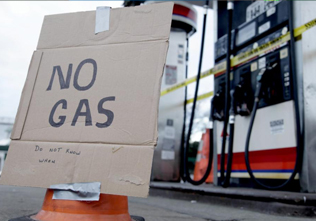Everyone works for 3 reasons:
- Money
- Self-Improvement (building skills, a resume and a network)
- Fun (subjective for every individual)
It is an old adage that the best way to get a high paying job is to get a low paying job and do it well. A common theme at several Federal Reserve meetings and business roundtables I have attended has been how hard it is to find and hire qualified candidates. Then I thought about our industry and my experiences in the past with interns, and my own career path.
An associate at a convenience store learns:
- Showing up on time (Woody Allen’s advice on success)
- Customer service
- Marketing principles
- Reporting skills
- How to manage up
- Reporting and analytical skills
- Principles of innovation
- Communication skills
- Technology skills
Frankly, I learned more about business working at my mother’s store and uncle’s gas station than I ever learned at Harvard.
The retail convenience industry employs 1 million associates, managers and field reps with an 80% turnover rate annually. These jobs pay between $20,000 and $50,000 per year, and they are great jobs to hone your skills and either move up the ladder to management roles and higher compensation or move laterally to better jobs.
It would be a shame if higher minimum wages choke off this entry point to a better life. In fact, with 4 million students graduating from high school every year and 5 million from colleges, it would be worth it to encourage a vigorous and focused intern training program for these students in all industries including retail convenience. Allowing businesses to receive accelerated tax deductibility for hiring and training interns would only cost the treasury $2 billion per 1 million interns per year, which is $2,000 per person (or 20% of the cost of a year of public college) with greater tailored benefits for the employer and employee. And, our economy needs to create 1 million jobs per year to absorb population growth while keeping unemployment steady.
The program could be structured to certify and accredit trainee programs and limit the number of interns per company to a stated percentage of the workforce. Combine this proposal with more trade schools and manufacturing apprenticeships (not everyone needs a college degree) and we will see a lessening of escalating college tuition costs, a better-prepared workforce and a narrowing of the income disparity as well as relief from the onerous effects of globalization.
Source - Fuel Marketer News







